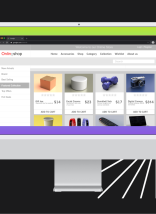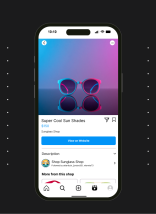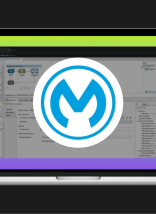Magento 2 is a feature-packed eCommerce solution that provides complete flexibility when creating an online store. Out of the box, it comes with advanced features which allow you to run an online store with very little add-ons needed.
Magento 2 includes advanced eCommerce features and unlimited customization.
Outside of the standard eCommerce features needed to run an online store (user management, catalog management, cart, credit card processing, etc.), Magento 2 comes with advanced eCommerce features:
Advanced promotions building
Customer groups with customer group pricing (far exceeding Shopify’s capabilities)
A robust CMS for creating pages, navigation, and more
Various product types
B2B Features (commerce edition only)
Dynamic rule based product relations (commerce edition only)
Customer segments (commerce edition only)
Multi-lingual support
Multiple catalogs, stores, and websites
Multi-source inventory
Magento 2 is fully customizable, and allowing development teams to add any additional features a client would request. All platform limitations are removed – meaning anything can be expanded if it falls within a developer’s skillset.
Choose between two versions: Magento Open Source and Magento Commerce.
Magento Open Source is a free version that contains enough features for most stores. However, it does not come with any support from Magento directly.
Magento Commerce, on the other hand, provides more built in features (customer segments, b2b, dynamic product relations, and more) and direct customer support from Magento.
Magento Commerce is costly, but for many larger businesses it is the better option due to the addition of support and features.
Which eCommerce scenarios would benefit from Magento 2?
You need extensive integrations to external systems.
If a website needs extensive integrations to external systems like an ERP or CRM, Magento 2 is the best option. That’s because Magento 2 has a robust API that makes many of these integrations possible.
There will always be some complex situations where the API is limited. In these instances, a trusted partner can create custom integrations to go beyond the supplied APIs.
You have multiple websites or stores.
Magento has multi storefront functionality built in. Everything is managed through the single application, with no need to install additional servers.
Products are shared between the different websites/stores with the ability to easily include or exclude each. On the other hand, other options like Shopify require you to purchase additional accounts, manage the products independently, and manage the customers independently.
You need an advanced custom theme.
Magento 2 empowers teams to create any theme free of restrictions that come with other eCommerce solutions. Regain full control of UX and create unique product layouts and interactions.
You have multilingual stores.
The work has already been done – Magento 2 has all of the terms that are used in its base theme translated to multiple languages.
The only translations you need to worry about are data that are entered into the store and any changes to the copy in themes.
With other platforms, you’ll be forced to purchase third-party apps to handle the translations. While these third-party solutions are effective, they are challenging to manage compared to Magento’s store scope switching.
You are a B2B store.
Magento 2 Commerce edition supports additional B2B features, which helps set up the functionality of the stores. These features include:
Company accounts
Shared catalogs with special pricing for B2B customers
Quick orders
Requisition lists
Quotes
Payments on Account
Many times B2B websites require customized features to work with their business rules. Magento 2 provides the flexibility to implement these rules.
Your website has large catalogs with complex products.
Magento 2’s product management tools are well-equipped to handle volume. This is especially true when it comes to configurable products. Magento provides a feature dedicated to creating and managing additional product attributes, creating flexibility in what information is attached to products.
You need the option to expand.
If an eCommerce business in Shopify needs a custom feature, they will be limited to what the APIs would offer, third-party apps, and their Liquid templating language.
In contrast, Magento 2 is limitless. Any team with the right development knowledge can build custom features, making skill sets the only limiting factor.
Your store has a high volume of transactions.
Magento 2 does not charge a fee on each sale. Depending on the plan chosen, Shopify can take between 2.9% and 2.4% with an additional $0.30 from every transaction (and even more if using an external payment gateway).
For lower volume stores, this might not be an issue. With a large volume store, the additional costs of the transactions can add up.
In what scenarios is Magento 2 a bad fit?
If a business has a catalog of less than 100 products, Magento 2 is more than likely too robust. Even if you have 1000 products, simpler options like Shopify or WooCommerce might suit all of your needs with the benefit of convenience.
You need something built quickly.
A Magento 2 store takes development time and careful planning to get up and running. It also requires setting up hosting, deploying code, and more.
Another solution to consider is quickly launching a Shopify store while building a Magento 2 store. You might also want to try a proof of concept website before fully investing.
You’re on a tight budget.
While it is the most powerful and flexible eCommerce option, Magento 2 is more expensive to run than other platforms. Even with Open Source, the cost of hosting can quickly become expensive.
A robust server infrastructure is required to run Magento efficiently and at optimal performance. Furthermore, the upkeep of Magento 2 applications includes frequent security updates.
A team experienced in many eCommerce platforms can guide you.
Need help evaluating your situation and choosing the best platform? Reach out for a free consultation with one of our eCommerce experts. We’re happy to help you get started with your solution.










